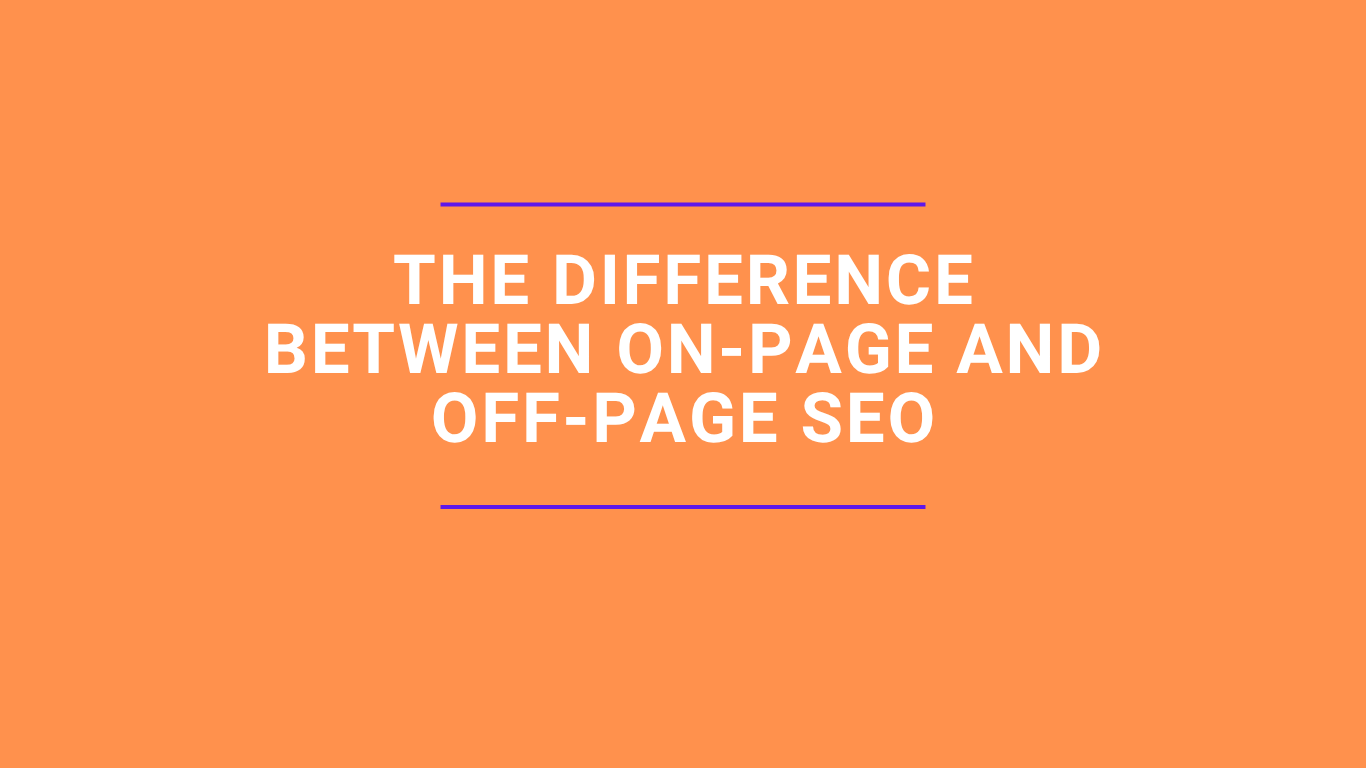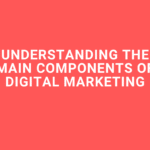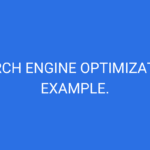
The Difference Between On-Page and Off-Page SEO
Introduction to SEO
Techniques for better ranking (SEO) is an essential digital marketing strategy that aims to increase the visibility of a website in search engine results pages (SERPs). The primary objective of SEO is to enhance organic traffic by ensuring that websites rank higher for relevant search queries. As users increasingly rely on search engines to find information, products, and services, the importance of effective SEO cannot be overstated. It is not merely about gaining traffic; it is about attracting the right type of traffic that can convert into potential customers.
Table Of Content
SEO encompasses a variety of practices designed to improve both the quality and quantity of online traffic. It is a multifaceted field that requires a thorough understanding of how search engines work, the algorithms they utilize, and what users are searching for. Search engines like Google prioritize websites that provide the best user experience and the most relevant content. Therefore, optimizing a website is not just about keyword usage; it involves a holistic approach that includes site structure, content quality, loading speed, mobile-friendliness, and user engagement metrics.
SEO is generally categorized into two main types: on-page SEO and off-page SEO. On-page SEO refers to the practices implemented directly on the website, such as optimizing content, meta tags, and internal linking. These elements contribute to enhancing the relevance and user experience on the site. Conversely, off-page SEO involves actions taken outside the website, primarily focusing on backlinks and social media engagement, which help to establish authority and trustworthiness in the eyes of search engines.
Understanding both on-page and off-page SEO is crucial for anyone looking to enhance their online presence. By combining these strategies effectively, businesses and individuals can significantly improve their chances of being discovered in the vast digital landscape.
What is On-Page SEO?
Techniques for better ranking On-page SEO refers to the practice of optimizing individual web pages in order to improve their search engine rankings and drive relevant traffic. This aspect of SEO involves various elements, including content quality, HTML source code, and user experience. By meticulously refining these components, website owners can enhance their chances of achieving higher visibility in search engine results pages (SERPs).
One of the foundational elements of on-page SEO is the use of title tags. These tags serve as a title for a webpage and are crucial for both users and search engines. A well-crafted title tag that includes relevant keywords can significantly improve the page’s click-through rate (CTR) and overall ranking. Similarly, meta descriptions provide a brief summary of a webpage’s content. Although meta descriptions do not directly influence rankings, they play a vital role in attracting users to click through to the site.
Another important aspect of on-page SEO is the use of header tags (H1, H2, H3, etc.). Header tags help organize content and make it more readable for visitors. The primary header (H1) typically encompasses the main keyword, while subheadings (H2, H3) can include related keywords and phrases, enhancing the page’s keyword strategy. Utilizing keyword usage effectively throughout the content is also essential. This includes placing keywords naturally within the text, avoiding unnatural repetition, and ensuring that they align with the topic being addressed.
Lastly, internal links are a critical component of on-page SEO. They help distribute page authority across the website and guide users to explore additional relevant content. By interlinking important pages, website owners can improve user experience and increase the time visitors spend on their site, which can positively impact search rankings.
What is Off-Page SEO?
Techniques for better ranking Off-page SEO refers to the optimization strategies implemented outside of a website to improve its position on search engine result pages (SERPs). Unlike on-page SEO, which focuses on content and technical aspects of a website, off-page SEO emphasizes external elements that can affect a site’s ranking. These external factors resonate deeply with search engines as they provide valuable insight into the website’s authority, relevance, and trustworthiness within its niche.
One of the most critical components of off-page SEO is backlinks, which are links that point from other websites to your own. Search engines, particularly Google, perceive backlinks as a vote of confidence or endorsement. The quality and quantity of backlinks play a significant role in determining how well a website ranks. Specifically, links from authoritative and relevant sites carry more weight than those from lesser-known sources. Consequently, businesses often engage in tactics such as guest blogging, influencer outreach, and digital PR to earn valuable backlinks and enhance their off-page SEO strategy.
Social media presence serves as another vital aspect of off-page SEO. An active engagement on platforms like Facebook, Twitter, and Instagram can significantly impact a website’s visibility and traffic. While social signals, such as likes and shares, do not play a direct role in ranking algorithms, they can increase brand awareness and drive more visitors to the site. A strong social media strategy can also facilitate backlinks, helping a site gain credibility in its field.
Lastly, online reputation is crucial for off-page SEO. User reviews, testimonials, and ratings must be aligned with the business’s offerings. A positive online reputation can enhance credibility and draw in more potential customers, yielding results that positively impact the website’s search visibility. Focus on managing these external factors to bolster your off-page SEO efforts for better search engine rankings.
Key Differences Between On-Page and Off-Page SEO
Search Engine Optimization (SEO) can be categorized into two primary strategies: on-page SEO and off-page SEO. Understanding the distinctions between these two approaches is crucial for developing a comprehensive and effective SEO strategy.
On-page SEO refers to all the optimization efforts made directly on the website. This includes elements such as content quality, keyword usage, meta tags, headers, images, and the overall website structure. The primary objective of on-page SEO is to enhance individual web pages to improve their ranking in search engine results. For instance, utilizing relevant keywords in strategic locations can significantly influence a page’s visibility. Moreover, optimizing the site’s load speed, mobile-friendliness, and user experience are integral aspects of on-page strategies. Proper internal linking also contributes to how search engines perceive the importance of a website’s content.
In contrast, off-page SEO encompasses all the activities conducted outside the website that impact its authority and relevance on search engines. This approach largely involves building backlinks from reputable sources, social media engagement, and online reputation management. A strong off-page SEO strategy is essential as it signals to search engines that your site is credible and valuable based on external validation. For example, high-quality backlinks from respected domains are vital indicators of authority, and they can significantly boost a site’s ranking potential. While on-page SEO focuses on optimizing aspects within the site, off-page SEO emphasizes building relationships and securing endorsements across the web.
In summary, on-page SEO and off-page SEO serve distinct but complementary roles in a successful SEO strategy, with the former targeting the internal mechanisms of a website and the latter aiming to enhance its reputation and authority externally.
Importance of On-Page SEO
On-page SEO plays a crucial role in enhancing both the user experience and the relevancy of a website concerning search queries. It encompasses various elements that contribute to the overall visibility of a website on search engines. By optimizing individual page elements, such as content, headers, images, and meta tags, on-page SEO ensures that the content is not only accessible to search engines but also engaging for users.
One of the primary benefits of effective on-page SEO is improved user experience. When a website is well-structured and loaded with relevant content, visitors are more likely to find the information they seek. This encourages longer dwell times and lower bounce rates, both of which signal to search engines that the site is authoritative and valuable. For instance, a blog article that includes headings, bullet points, and images enhances readability and engagement, making it more user-friendly.
Additionally, on-page SEO significantly increases the relevancy of a website to specific search queries. By integrating targeted keywords naturally within the content, websites can better align themselves with users’ search intentions. For example, a fitness blog that utilizes specific terms related to workout routines, nutrition, and health will likely rank higher for those queries, especially when combined with well-researched content that addresses common user questions and offers actionable advice.
Moreover, optimized content aids in higher search engine rankings. A website that consistently implements effective on-page SEO strategies, such as proper keyword placement, interlinking relevant content, and optimizing page titles and descriptions, can enhance its positions in search results. As a direct result, this can lead to increased organic traffic, improving conversion rates and contributing to overall business growth.
Importance of Off-Page SEO
Off-page SEO is a critical component of a comprehensive search engine optimization strategy. While on-page SEO focuses on optimizing the website content and structure, off-page SEO pertains to activities conducted outside the parameters of the website itself. This aspect is essential for establishing credibility and authority in the digital landscape, which is increasingly important for achieving higher search engine rankings.
One of the most significant facets of off-page SEO is link building. Acquiring links from reputable and authoritative sites significantly enhances domain authority, a key factor in how search engines evaluate the trustworthiness and relevance of a website. When other well-respected websites link to your content, it signals to search engines like Google that your site warrants attention and credibility. These inbound links can stem from various sources, such as blogs, news articles, and academic publications, all of which contribute to an enhanced online reputation.
Moreover, the role of social media in off-page SEO cannot be overstated. As platforms that facilitate content sharing and engagement, social media channels enhance visibility and, in turn, drive traffic back to websites. The algorithms employed by search engines may also take into account social signals—such as shares, likes, and comments—as indicators of a site’s relevance and authority. Active engagement on these platforms fosters a sense of trust among users, which can lead to higher conversion rates and often encourages organic backlinks.
Therefore, investing time and resources into off-page SEO is not merely an option; it is a necessity for businesses and individuals striving to endure in a competitive online environment. By focusing on building a robust online presence through credible backlinks and active social media engagement, one can establish a foundation of authority that supports sustained digital visibility.
Effective Strategies for On-Page SEO
On-page SEO encompasses various strategies aimed at optimizing individual web pages to improve search engine rankings and enhance user experience. A comprehensive approach to on-page optimization involves focusing on several core components, including keyword research, content creation, user-friendly design, and mobile-friendliness.
To initiate effective on-page SEO, thorough keyword research is paramount. Identifying relevant keywords and phrases that potential visitors are likely to search for allows you to tailor your content accordingly. Tools such as Google Keyword Planner can assist in discovering high-traffic keywords, including long-tail variations that can attract targeted audience segments. Once you have established a keyword list, strategically incorporating these keywords within headers, meta descriptions, and throughout the body content will bolster your chances of ranking better in search results.
The next essential strategy is content creation. High-quality, informative content not only appeals to users but also positions your website as an authoritative source in your niche. Focus on creating engaging, relevant, and original content that addresses user queries and provides solutions. Integrating multimedia elements, such as images, infographics, or videos, can also enhance the user experience and increase engagement, which signals to search engines that your content is valuable.
User-friendly design is another critical aspect of on-page SEO. Ensuring your website is easy to navigate, with clear menus and accessible information, significantly enhances user experience. Clear call-to-action buttons and structured content with appropriate headings improve readability. Furthermore, mobile-friendliness is essential in today’s digital landscape. Websites that are responsive and accessible across various devices not only cater to a broader audience but also receive favorable ranking considerations from search engines, as mobile optimization has become a significant ranking factor.
Effective Strategies for Off-Page SEO
Off-page SEO refers to all activities performed outside of a website to improve its position in search engine results pages (SERPs). As search engines evolve, they increasingly prioritize external factors that contribute to a site’s authority and relevance. One of the most effective strategies for enhancing off-page SEO is link building. This involves acquiring quality backlinks from reputable websites, which signal to search engines that your content is valuable and trustworthy. Guest blogging, creating shareable infographics, and participating in relevant forums are excellent ways to build high-quality links. The focus should remain on obtaining links from authoritative sites within your industry to enhance credibility.
Another key strategy is leveraging social media marketing to increase visibility and engagement. By sharing high-quality content across various social platforms, businesses can drive traffic to their websites and foster a strong online community. Engaging with audiences through posts, comments, and shares can improve brand recognition and lead to natural backlinks as other users reference your content. Additionally, consider creating campaigns that encourage user-generated content; this not only generates fresh impressions but also builds a sense of community around your brand, enhancing off-page SEO by creating indirect links as users discuss your products or services online.
Online public relations (PR) play a significant role in off-page SEO as well. Establishing relationships with journalists, influencers, and bloggers can lead to media coverage that reinforces your website’s profile. Press releases about company news or innovative products can attract attention, resulting in backlinks from news outlets and industry-related sites. Combining these off-page strategies allows for a comprehensive approach to SEO that develops a website’s authority and improves its rankings, ultimately contributing to a solid online presence in a competitive market.
Conclusion: Integrating On-Page and Off-Page SEO
In today’s digital landscape, understanding the distinction between on-page and off-page SEO is crucial for developing a successful digital marketing strategy. On-page SEO focuses on optimizing elements within a website, such as content, meta tags, and internal links. These aspects directly influence how search engines interpret and rank a site for relevant queries. Conversely, off-page SEO encompasses external factors, such as backlinks, social media presence, and online reputation, which contribute to a site’s authority and relevance from an external viewpoint.
When executed effectively, the integration of both on-page and off-page strategies creates a comprehensive SEO approach that drives improved search engine rankings and enhances online visibility. On-page optimizations lay the groundwork by ensuring the website is user-friendly and relevant, while off-page efforts expand the site’s reach and credibility, as they attract traffic from other domains and platforms. Together, they provide a synergistic effect that is essential for achieving higher organic search visibility.
Implementing a holistic SEO strategy that incorporates both on-page and off-page techniques can lead to an increase in site traffic, better user engagement, and ultimately, higher conversion rates. The contemporary SEO landscape demands that marketers not only focus on optimizing their websites but also cultivate a strong presence across different platforms. By doing so, they can build authority in their niche and foster a loyal audience.
In summary, recognizing the critical roles that both on-page and off-page SEO play is vital for businesses aiming to thrive in the competitive digital market. By striking a balance between these two elements, organizations can maximize their online potential and achieve sustained growth. Therefore, it is imperative for businesses to adopt a comprehensive SEO framework that integrates both approaches for optimal results.






Every sentence feels crafted with care, but not forced. The flow is natural, like the current of a stream, inviting the reader to drift with it. In that drifting, new perspectives and quiet understanding arise.
Thank You!